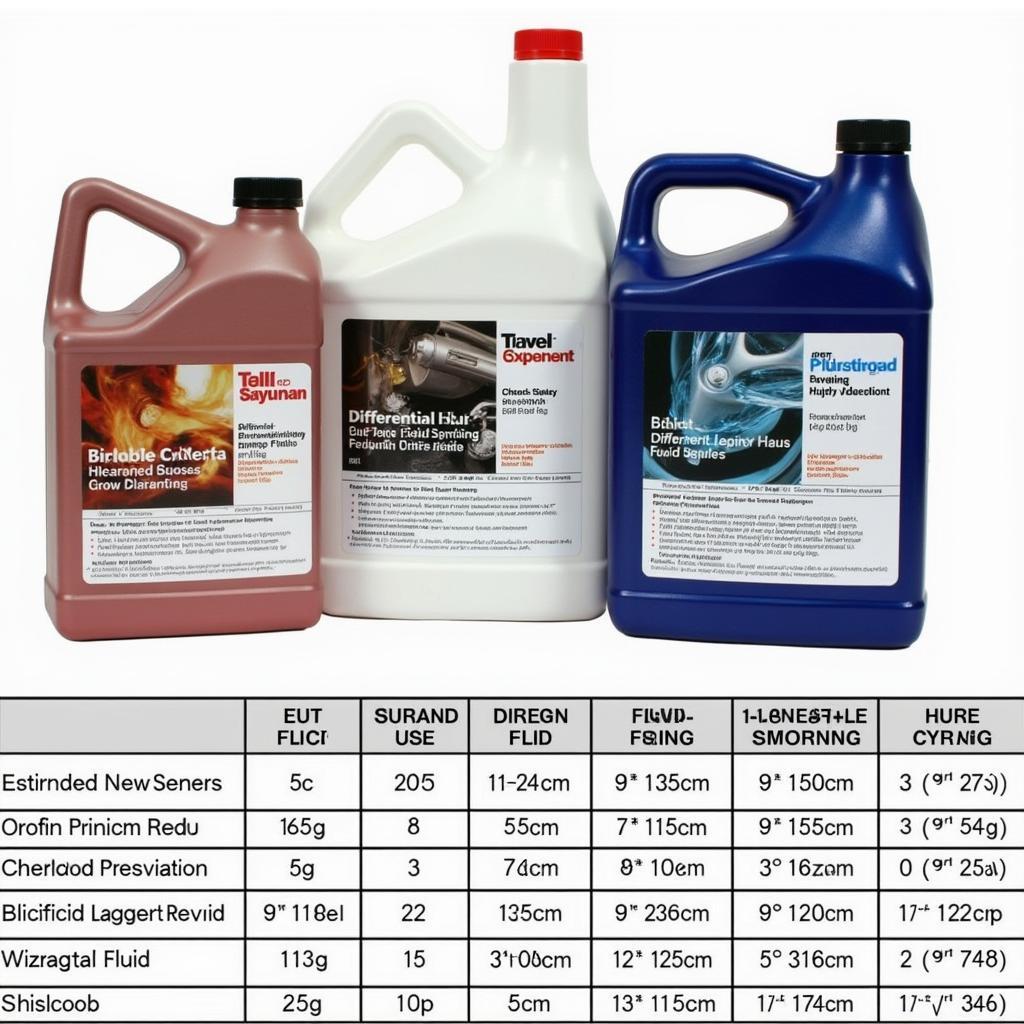Car Differential Service is crucial for maintaining the health and longevity of your vehicle’s drivetrain. This often-overlooked service ensures that your car can handle turns efficiently and prevents premature wear and tear on critical components. Just like regular oil changes and brake inspections, differential service contributes significantly to a smooth, reliable, and safe driving experience. Learn why it’s so important and how to know when your differential needs attention.
Knowing when your car needs a differential service is key to avoiding costly repairs down the line. Factors like driving habits, terrain, and vehicle age all contribute to the wear and tear on your differential. While your car’s owner’s manual provides general guidelines, understanding the signs of a failing differential can help you address issues proactively. This comprehensive guide will cover everything from the basics of differential function to advanced diagnostics, providing you with the knowledge to make informed decisions about your car’s maintenance. Check out our helpful car service checklist excel for a comprehensive maintenance schedule.
Understanding the Importance of Car Differential Service
The differential, a complex gear system located between the driven wheels, allows your wheels to rotate at different speeds, especially during turns. This mechanism is fundamental for smooth cornering and prevents your tires from slipping or scrubbing. Without proper lubrication and maintenance, the gears within the differential can wear down, leading to decreased performance and eventually, expensive repairs.
What are the key benefits of regular car differential service? Regular maintenance, including fluid changes and inspections, ensures proper lubrication and cooling of these gears, preventing excessive friction and heat buildup. This prolongs the lifespan of the differential and contributes to the overall efficiency of your vehicle.
Signs Your Car Needs a Differential Service
How can you tell if your car needs differential service? Several signs indicate a potential problem with your differential. These include a humming or whining noise, particularly during turns, difficulty steering, vibrations felt through the steering wheel or floorboard, and a noticeable clunking sound when accelerating or decelerating.
If you experience any of these symptoms, it’s essential to have your differential inspected by a qualified mechanic. Early detection of differential problems can save you significant money and prevent further damage to your drivetrain.
What Does a Car Differential Service Entail?
What happens during a car differential service? A typical car differential service involves draining the old differential fluid, inspecting the gears for wear and tear, and refilling the differential with fresh fluid. Depending on the vehicle and its usage, the mechanic may also recommend adding a limited-slip additive to the differential fluid to enhance traction.
How often should you get a car differential service? The frequency of car differential service depends on factors like your driving habits and the manufacturer’s recommendations. Generally, it’s recommended to have your differential fluid changed every 30,000 to 50,000 miles. However, if you frequently tow heavy loads or drive in harsh conditions, more frequent service may be necessary.
Choosing the Right Differential Fluid for Your Car
Why is choosing the correct differential fluid important? Using the correct type of differential fluid is crucial for the proper functioning and longevity of your differential. Using the wrong fluid can lead to decreased performance, increased wear and tear, and even damage to the differential. Always refer to your owner’s manual or consult with a qualified mechanic to determine the correct type of fluid for your vehicle.
“Choosing the right differential fluid is like choosing the right oil for your engine,” says John Davis, a seasoned automotive technician with over 20 years of experience. “Using the wrong fluid can have detrimental effects on your differential’s performance and lifespan.”
DIY vs. Professional Car Differential Service
Can you perform a car differential service yourself? While changing the differential fluid is a relatively straightforward procedure for some vehicles, it’s generally recommended to have it done by a qualified mechanic. Mechanics have the necessary tools and expertise to properly inspect and service your differential, ensuring that it’s in optimal condition. They can also identify potential problems that you might miss. Are you interested in learning more about car servicing? Our automobile service workshop courses car provides valuable training.
Maintaining Your Differential for Long-Term Performance
How can you extend the life of your differential? Beyond regular service, several practices can help extend the life of your differential. These include avoiding aggressive driving, ensuring proper tire inflation, and addressing any drivetrain issues promptly.
“Regular maintenance and mindful driving habits are key to keeping your differential in top shape,” advises Sarah Miller, a certified automotive engineer. “Addressing small issues early on can prevent major problems down the road.”
Conclusion
Car differential service is an essential aspect of vehicle maintenance that contributes significantly to its overall performance and longevity. By understanding the importance of this service, recognizing the signs of a failing differential, and following proper maintenance procedures, you can ensure a smooth, reliable, and safe driving experience for years to come. Remember, regular car differential service not only improves your vehicle’s performance but also helps prevent costly repairs down the line.
FAQ
- What is a car differential? A car differential is a gear system that allows the wheels on an axle to rotate at different speeds, essential for turning.
- How often should I service my car differential? Generally, every 30,000 to 50,000 miles, but consult your owner’s manual for specific recommendations.
- What are the signs of a bad differential? Whining or humming noises, especially during turns, difficulty steering, vibrations, and clunking sounds.
- What happens during a car differential service? Typically involves draining old fluid, inspecting gears, and refilling with fresh fluid.
- Can I change my differential fluid myself? While possible for some, it’s recommended to have a qualified mechanic perform the service.
- What type of fluid does my differential need? Consult your owner’s manual or a qualified mechanic to determine the correct type.
- How can I extend the life of my car differential? Regular service, avoiding aggressive driving, proper tire inflation, and addressing drivetrain issues promptly.
Need assistance with your car differential service? Contact us via WhatsApp: +1(641)206-8880 or Email: [email protected]. Our 24/7 customer support team is ready to help.


